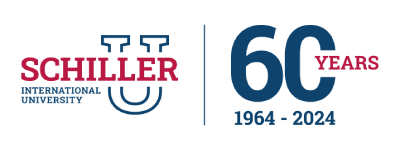The more knowledge one has, the more they can use that advantage to open doors that might once have felt out of reach. A dual degree is often seen as the answer to that problem. It can help you access new opportunities, or at least, it should, theoretically. But is that always true? What does a dual degree really mean, and what does it take to walk through those doors?
If this jumble of thoughts has crossed your mind as you plan your next step, you have probably also wondered whether the effort, time, and cost are worth it. The reality is much simpler: a dual degree is not a heavier program. It is a streamlined path that awards two fully accredited qualifications within the structure of one program.
What Exactly Is a Dual Degree?
A dual degree means you earn two separate qualifications, often from two universities, with each degree accredited in a different region of the world. This global accreditation allows you to increase your visibility, career mobility, and confidence among employers. It is not to be confused with a double major, where you study two subjects under the same degree. Many students mix them up, but the difference lies in depth: a double major focuses on two areas within one degree, while a dual degree earns you two independent degrees for the same program.
At Schiller International University, for example, students can earn both US and European-accredited degrees through our partnerships with leading institutions like the University of Roehampton in London and Dublin Business School in Ireland. This means you graduate with credentials accepted across continents, plus access to two alumni networks and the cultural exposure of studying in a major European business hub such as Dublin.
How Manageable Is a Dual Degree, Really?
Very manageable, especially at Schiller, where pathways are intentionally structured to avoid overload. Students follow one integrated study plan, and the academic experience is organized so that earning two qualifications fits naturally within the program. Undergraduate students do not take additional courses for either Roehampton or Dublin Business School to complete their dual degrees. Postgraduate students completing the Roehampton pathway take just three extra modules; a small, clearly defined addition that fits into the program’s academic rhythm. This means students maintain a steady, organized workload rather than a doubled one.
The program focuses on efficiency, not intensity. You are not doing 'more,' you are gaining 'more' from the same academic journey.
The Rewards Behind the Structure
So why do students still choose a dual degree? Because it multiplies possibilities without multiplying your workload. It is not just two certificates; it is:
- Two internationally accredited qualifications
- Two professional and alumni networks
- Two academic perspectives and learning styles
- Greater cultural adaptability
- Wider global recognition among employers
Many international employers hesitate with foreign-only degrees, and a dual degree helps overcome that barrier instantly. The range of perspectives and credentials gives graduates a strong career foundation, especially for roles requiring cross-cultural understanding or global mobility. You gain academic rigor and rewards that translate directly into employability, a key benefit of dual-accredited programs.
Dual Degree vs Single Degree: Which One is for You?
A single degree offers focus: You will acquire in-depth knowledge, master one domain, and move straight into the workforce. A dual degree offers broader recognition and more mobility.
For some, that range feels empowering; for others, a single pathway may feel more straightforward. If your goals are specific and you want a direct route, a single degree is practical. But if you see yourself working across industries, borders, or global markets, a dual degree provides built-in flexibility without adding academic strain. The worth lies in alignment with your future, not in comparing difficulty.
Is a Dual Degree Worth it?
Worth depends on what you gain for what you invest. Since the dual degree structure at Schiller fits within a normal degree timeframe and does not double your coursework, the return on investment is exceptionally high. You walk away with:
- Two fully accredited degrees
- Global recognition
- Professional confidence
- Cross-cultural skills
- Expanded long-term career options
Graduates often say the program helped them think more globally and navigate their careers more confidently, not because they worked harder, but because they graduated with broader qualifications. If you see your career unfolding across countries or industries, earning a globally accredited dual degree can be one of the most practical investments you can make. It will give you a competitive edge in the dynamic business world.
How Schiller Makes Dual Degrees Work for Real Students
At Schiller International University, the dual degree model is built for practicality and international reach. With campuses in Tampa, Madrid, Paris, and Heidelberg, and partnerships with top institutions like the University of Roehampton and Dublin Business School, you can earn two fully accredited degrees, one US and one European, through one integrated program. The approach combines:
- The flexibility of American education.
- The academic depth of the European model.
- Study across multiple countries with Schiller’s intercampus mobility program.
- Exposure to global business and cultural environments
These pathways will help you transition into real professionals. From internships with global companies to certifications and innovation challenges, Schiller’s partnerships ensure learning never stays confined to a classroom.
Graduating with a Schiller dual degree will allow you to step into your career with a network that spans industries and continents. You can begin with a system built for real-world growth.
The Real Worth of Dual Degrees
A dual degree does not increase your workload; it increases your opportunities. The structure is designed to be manageable, organized, and supportive, while expanding your potential far beyond what a single qualification might offer.
If you want to push beyond borders, learn across cultures, and build a career recognized around the world, this path is worth every hour you put into it.
Schiller’s dual degrees in partnership with top universities are designed for global outreach with a purpose. Explore our dual degree programs today.
- BA in International Relations and Diplomacy
- BSc in Computer Science
- BSc in International Business
- BSc in International Hospitality and Tourism Management
- BSc in International Marketing
- Master of Business Administration (MBA)
- MBA in International Business
FAQs
Q1. What is the difference between a dual degree and a double major?
Answer: A dual degree gives you two separate qualifications, often from two universities. A double major means you study two subjects under one degree structure.
Q2. How long does it take to complete a dual degree program?
Answer: Most dual degree programs take around four years for undergraduate students and up to two years for postgraduate students, depending on the structure and partnership agreements. At Schiller, you can earn your dual degrees within the same timeframe as a single degree.
Q3. Is a dual degree more expensive than a single degree?
Answer: It can be slightly more costly, but many universities structure dual-degree programs efficiently so you do not pay double tuition. The added value often comes from global recognition and employability.
Q4. What are the career benefits of earning a dual degree?
Answer: Dual degree graduates often have broader job options, stronger cross-cultural skills, and higher career mobility. Employers value the versatility and resilience that these programs develop.
Q5. Are dual degrees recognized internationally?
Answer: Yes. When earned through accredited institutions, dual degrees are recognized in multiple countries. With Schiller, you can earn US and European-accredited degrees with global recognition.

 Request information
Request information









